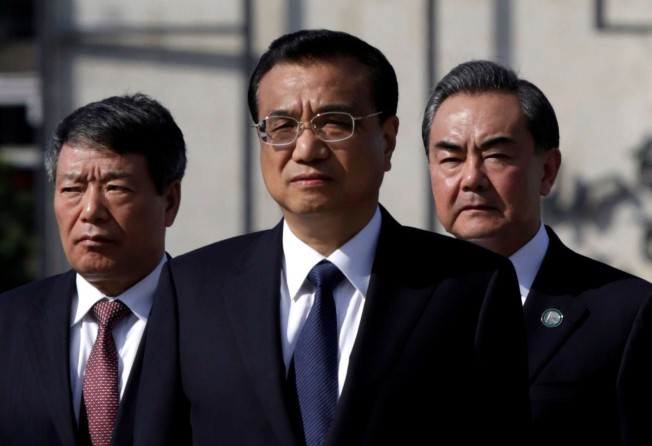Premier hands out economic sweeteners in first visit to Havana
Li Keqiang calls for stronger links with Cuba in message observers see as aimed at rest of Latin America

Premier Li Keqiang said China wants to expand economic cooperation with Cuba as he signed deals for business, debt cancellations and new loans during his landmark visit to the lone communist state in the Americas.
Li met with President Raul Castro at the Palace of the Revolution, with the two countries signing about 30 cooperation agreements in a wide range of areas, including a protocol cancelling Cuban debts and four loan deals for projects on the island, according to local television.
Li is the first Chinese premier to visit Cuba. President Xi Jinping visited in 2014. Li said China wanted to “inject a new dynamic in relations” by working more closely with the Cuban government.
China will support Cuba’s industrialisation and start cooperation with it on infrastructure and industrial equipment. It would also expand trade and financing to Cuba, Li was quoted by Xinhua as telling Castro.
“We are willing to work with Cuba on biotech, renewable energy, telecommunications, home appliances, agricultural equipment and infrastructure,”
Li wrote in an article in Granma, the Cuban Communist Party publication.
The visit by Li came just days after Japanese Prime Minister Shinzo Abe was in the communist country. Abe said Japan also wanted to increase economic cooperation with Cuba in the area of infrastructure.
Companies from the US and Japan and other Western countries began to enter Cuba after theWashington normalised ties with its former foe last year.
Fan Hesheng, director of the Institute of Latin America Studies at Anhui University, said trade between China and Cuba was mainly focused on agricultural products like cane sugar, and that China wanted to broaden economic cooperation in other areas.
China also wanted to use economic sweeteners for Cuba as an example for other Latin American countries, he said.
“From the Chinese perspective, more diversified trade ties with Cuba can not only add steam in furthering Sino-Cuba relations, but also set an example for other Latin American countries in deepening economic ties with China,” Fan said.
“Ties between China and Cuba are cordial and time-tested, but trade ties are lagging behind the political cooperation,” Liu Weiguang, a research fellow specialising in Latin America studies at the Chinese Academy of Social Sciences, said.
Although China is Cuba’s second-largest trade partner after Venezuela, the volume remains small.
The limited trade volume is a concern for Cuban leaders, with exports to China only standing at some US$330 million last year.
That represented only about 0.2 per cent of total Chinese imports for last year, according to a UN trade database.
Besides promising economic cooperation, Li reiterated that China supported Cuba in following a socialist path.
China is closely watching the recent resurgence of right-wing forces in Latin America, according to observers.
US President Barack Obama met with Cuban dissidents at the US embassy in Havana last March during his landmark visit to Cuba, which was the prelude to the restoration of diplomatic ties between the two countries.
Additional reporting by Agence France-Presse in Havana